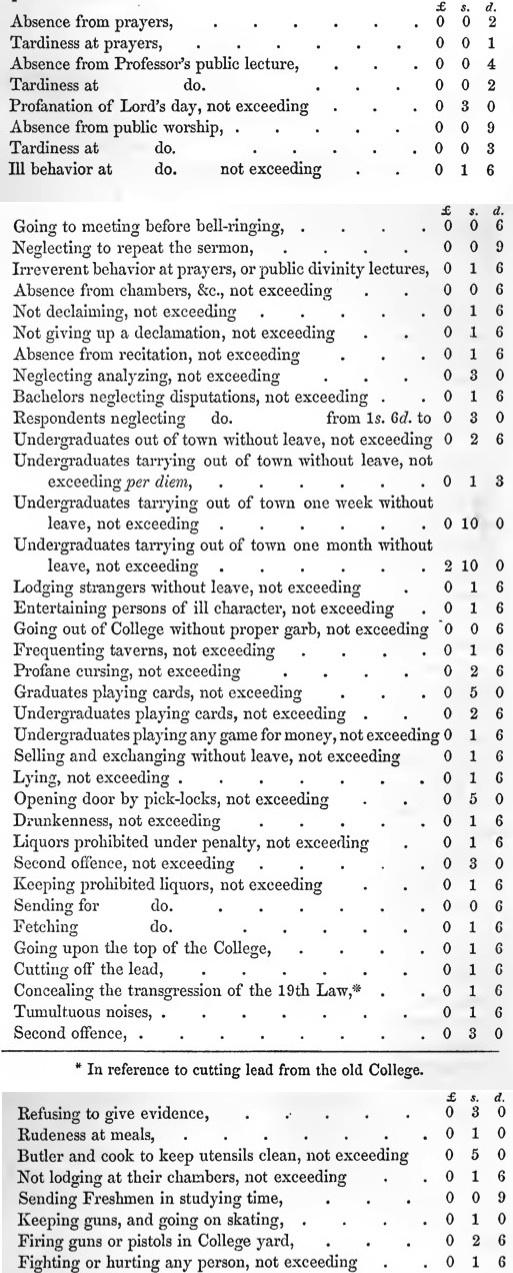The Vault is Slate’s history blog. Like us on Facebook, follow us on Twitter @slatevault, and find us on Tumblr. Find out more about what this space is all about here.
Published in the 1856 book A Collection of College Words and Customs, by B.H. Hall, this list describes offenses punishable by fining at Harvard College in the mid-18th century, and specifies maximum finable amounts in pounds (£), shillings (s.), and pence (d.). The list gives an interesting sense of the major student sins of that time, from card-playing to absenteeism to firing guns on the quad.
Hall, a lawyer, author, and Harvard graduate, included the list in his book out of antiquarian interest, noting that the practice of disciplinary fining, while “formerly customary … in many of the colleges in the United States,” was “now very generally abolished.”
Writing on the subject of fines in 1825, the year that the college abandoned the practice, Harvard professor George Ticknor noted that Harvard had collected $11,392 in fines in the previous 17 years. This was “ a large sum certainly, but the most unpleasant circumstance about it is, that such fines do little or no good at any College”:
As far as [fines] were noticed at all, they had the unfortunate air of seeming to be compensations for moral offences, rather than punishments; and fell on the parent at a remote time, instead of falling all at once on the offender himself.
Interestingly, the list doesn’t name hazing as a specific term, though Harvard College has records of undergraduates being fined for hazing first-year students in 1657. The word became much more popular in the mid-19th century, which may account for the omission. “Sending Freshmen in studying time” (in other words, sending first-year students on errands when they should be working) and “Fighting or hurting any person” might be reasonable stand-ins.
Offense No. 19, “Cutting off the lead,” seems to refer to the lead on the college building’s roof. Lead was once used for roofing material (especially for more expensively constructed buildings), and such buildings suffered from the depradations of thieves who would steal the lead and sell it. It’s unclear, in this case, whether the students were cutting off lead for profit or for simple mischief.

From B.H. Hall, A Collection of College Words and Customs, on Open Library.